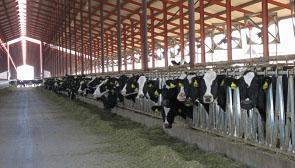In efforts designed to continue building relationships between India and the United States, the U.S. Grains Council hosted a group from India on an educational tour in Iowa last week that provided details on biotechnology, as well as insight into ethanol production and distiller’s dried grains with solubles (DDGS).
“While the purpose of this trip was to provide information and details on the benefits of biotechnology, members of the team demonstrated a lot of interest in DDGS, U.S. farming methods, crop inputs and the mechanization of modern farms,� said Rebecca Bratter, USGC director of trade development.
Bratter and Thomas C. Dorr, USGC president and CEO, attended the tour in Iowa and are heading to India next week to meet with government officials. Their trip follows a previous one to India last June by Chris Corry, USGC senior director of international operations, and Joe O’Brien, USGC regional director in the Middle East and Subcontinent.
“We are placing additional emphasis on India because the country, with its 1.2 billion people, has significant potential to grow as a market for U.S. agricultural products, including feed grains and DDGS,� Bratter said.
The trip to Iowa included participants from India’s private companies, starch manufacturers, a farm organization, a university and others, including a representative from the Indian Maize Development Association (IMDA). Some of the individuals met Corry and O’Brien in June, and Bratter and Dorr will follow-up with others, including IMDA, during their time in India, although their focus mostly center around meetings with government officials.
While in Iowa, the team visited biotech experts at Iowa State University and seed companies, as well as a central Iowa farm, ethanol plant and analysts at the Food and Agricultural Policy Research Institute.
“On the biotech side, conversations focused on the benefits of biotechnology, including improvements in production and yield potential,� Bratter said, adding that discussions also included the need for tolerances for the unintended presence of both approved and unapproved events, and the need for synchronous approvals.
“We were also pleased to see a strong interest in DDGS, which may create some opportunities in the future,� she said.


